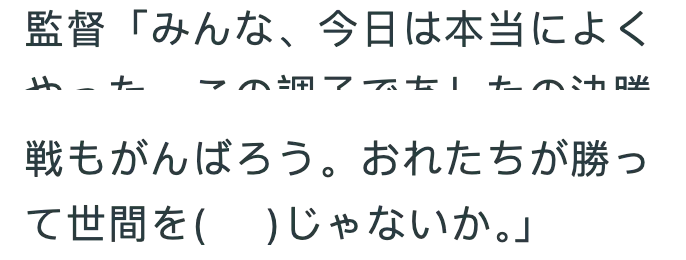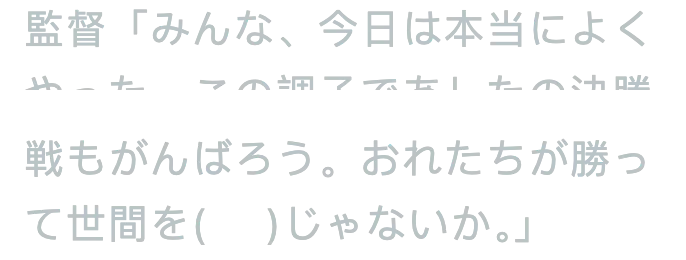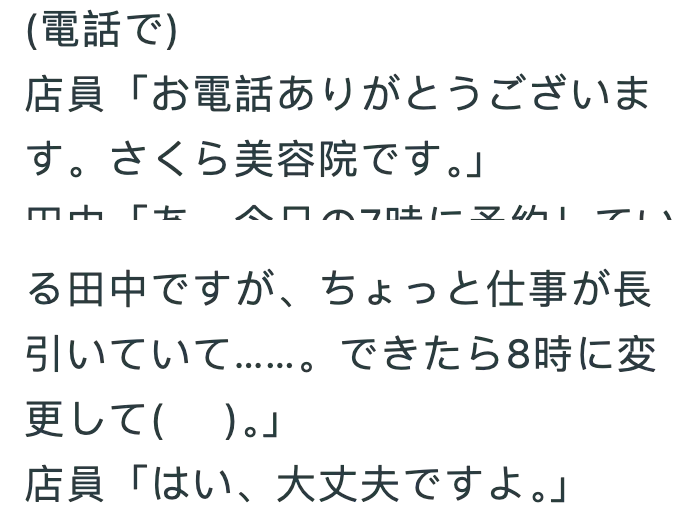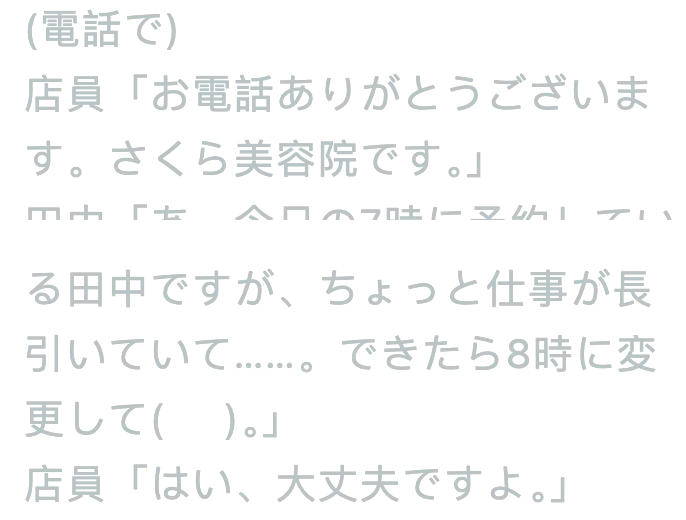1-0022 

1-0022 

- COACH: Everyone did a great job today! Let's use this energy to keep going in tomorrow's final! Let's win and blow the world away!
- 1驚いてやろう:(I'm/we's side)surprised(很不自然的表达)
- 2驚いてもらおう:To surprise the other person, right (but it should be preceded by "に")
- 3驚かせてやろう: Let's surprise each other!
- 4驚かせてもらおう:Let the other party allow us to be surprised (it should be preceded by "に").
- "Verb form" + "じゃないか": Let's... Let's.
2-0023 

2-0023 

- Translation: Tanaka: I heard that ひろし played with my kids yesterday, thanks.
- HIROSHI'S MOM: No way.
- "てもらう」means to ask the other person to do something for you, or it means that the speaker accepts with gratitude that the other person does something for him/her, and 「てくれる」means that the other person does something for him/her on his/her own initiative. "そうだ」means rumor, hears that something happened yesterday in the question, so use the past tense.
3-0024 

3-0024 

- (on phone)
- Clerk: "Thank you for calling, this is Sakura Beauty Salon"
- Tanaka: "Ah, I'm Tanaka who made an appointment for today at 7:00, and I'm going to be delayed a little bit to come over due to work, so if it's possible could you change my appointment to 8:00 would be great." もらえるとありがたいんですが:If it's possible... It would be great, expressing a polite request to the other person
- Taraika ga Desu ka: expresses persuasion, advice
- No de hanai de shiouka: Not... ? Expressing a euphemistic view or judgment
- なければなりませんか:Must... ?
4-0025 

4-0025 

- I let my brother have that bike.
- 譲る(ゆずる): to give, to transfer
- あげました:Given
- 1 loan shimashita: lent to
- 2もらいました:Received, gotten
- 4 Borrowed: Borrowed
5-0026 

5-0026 

- I grew up begging my parents to let me be free to do what I wanted to do.
- "もらう" means to ask the other person to do something for you, "てくれる" means the other person to do something for you, and "てくる" means to go from the past to the present in terms of time, and because it started when you were a child and has continued up to the present day, you need to use the past form of "くる".










